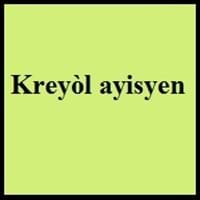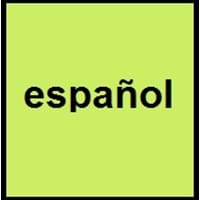Countries
Haiti
Andora, Argentina, Aruba, Australia, Belize, Bolivia, Brazil, Canada, Chile, Colombia, Costa Rica, Cuba, Dominican Republic, Ecuador, El Salvador, Equatorial Guinea, France, Gibraltar, Guatemala, Honduras, Jamaica, Latvia, Luxembourg, Mexico, Morocco, Namibia, Netherlands Antilles, New Zealand, Nicaragua, Norway, Panama, Paraguay, Peru, Philippines, Puerto Rico, Russia, Spain, Sweden, Switzerland, Trinidad and Tobago, Turkey, United Kingdom, United States of America, Uruguay, Venezuela, Western Sahara
National Language
Haiti
Spain
Second Language
Not spoken in any of the countries
Andora, Aruba, Australia, Austria, Belgium, Belize, Brazil, Bulgaria, Canada, Denmark, France, Germany, Ireland, Israel, Italy, Jamaica, Luxembourg, Morocco, Netherlands, Netherlands Antilles, New Zealand, Philippines, Poland, Portugal, Romania, Russia, Slovenia, Switzerland, Trinidad and Tobago, Turkey, United Kingdom, United States of America, US Virgin Islands
Speaking Continents
Central America, North America
Africa, Asia, Europe, North America, South America
Minority Language
Cuba
Brazil, France, Germany, Italy, Japan, Morocco, United Kingdom
Regulated By
Akademi Kreyòl Ayisyen (Academy of Haitian Creole)
Asociación de Academias de la Lengua Española
Interesting Facts
- In the year 1940, the first technical orthography for Haitian Creole was developed.
- In Haiian Creole, the word 'creole' is of Latin origin via a Portuguese term that means, "person raised in one's house".
- One of the world's most phonetic language is Spanish.
- Up to the 18th century, Spanish was diplomatic language.
Similar To
French Language
French Language
Derived From
Not Available
Latin
Alphabets in
HaitianCreole-Alphabets.jpg#200
Spanish-Alphabets.jpg#200
Writing Direction
Not Available
Left-To-Right, Horizontal
How Are You?
Kijan ou yé?
Cómo estás?
Good Night
Bon nwit
Buenas Noches
Good Evening
Bonswa
Bonne soirée
Good Afternoon
Bon apre-midi
Buenas Tardes
Good Morning
Bon apre-midi
Buenos Días
I Love You
Mwen renmen w
Te Quiero
Excuse Me
Eskize m
Discúlpeme
Dialect 1
Northern Haitian Creole
Mexican Spanish
Where They Speak
Cap-Haitien
Mexico
How Many People Speak
Not Available
Dialect 2
Central Haitian Creole
Cuban Spanish
Where They Speak
Port-au-Prince
Cuba
How Many People Speak
Not Available
Dialect 3
Southern Haitian Creole
Puerto Rican Spanish
Where They Speak
Cayes
Puerto Rico
How Many People Speak
Not Available
Second Language Speakers
Not Available
Native Name
Kreyòl ayisyen
Español
Alternative Names
Creole, Haitian Creole, Western Caribbean Creole
Castellano, Castilian, Español
French Name
haïtien; créole haïtien
espagnol; castillan
German Name
Haïtien (Haiti-Kreolisch)
Spanisch
Pronunciation
[kɣejɔl]
[espaˈɲol], [kasteˈʎano]
Ethnicity
Haitians
Not Available
Origin
17th Century
210 BC
Language Family
Indo-European Family
Indo-European Family
Subgroup
Not Available
Romance
Branch
Not Available
Not Available
Early Forms
No early forms
Old Spanish and Spanish
Standard Forms
Haitian Creole
Pluricentric Standard Spanish
Signed Forms
Not Available
Signed Spanish
Scope
Individual
Individual
ISO 639 6
Not Available
Not Available
Glottocode
hait1244
stan1288
Linguasphere
51-AAC-cb
51-AAA-b
Language Type
Living
Living
Language Linguistic Typology
Subject-Verb-Object
Subject-Object-Verb
Language Morphological Typology
Not Available
Fusional, Synthetic
Haitian Creole and Spanish Greetings
People around the world use different languages to interact with each other. Even if we cannot communicate fluently in any language, it will always be beneficial to know about some of the common greetings or phrases from that language. This is where Haitian Creole and Spanish greetings helps you to understand basic phrases in Haitian Creole and Spanish language. Haitian Creole word for "Hello" is Bonjou or Spanish word for "Thank You" is Gracias. Find more of such common Haitian Creole Greetings and Spanish Greetings. These greetings will help you to be more confident when conversing with natives that speak these languages.
Haitian Creole vs Spanish Difficulty
The Haitian Creole vs Spanish difficulty level basically depends on the number of Haitian Creole Alphabets and Spanish Alphabets. Also the number of vowels and consonants in the language plays an important role in deciding the difficulty level of that language. The important points to be considered when we compare Haitian Creole and Spanish are the origin, speaking countries, language family, different greetings, speaking population of these languages. Want to know in Haitian Creole and Spanish, which language is harder to learn? Time required to learn Haitian Creole is 24 weeks while to learn Spanish time required is 24 weeks.





